6. Once Upon a Time in the West (1968)
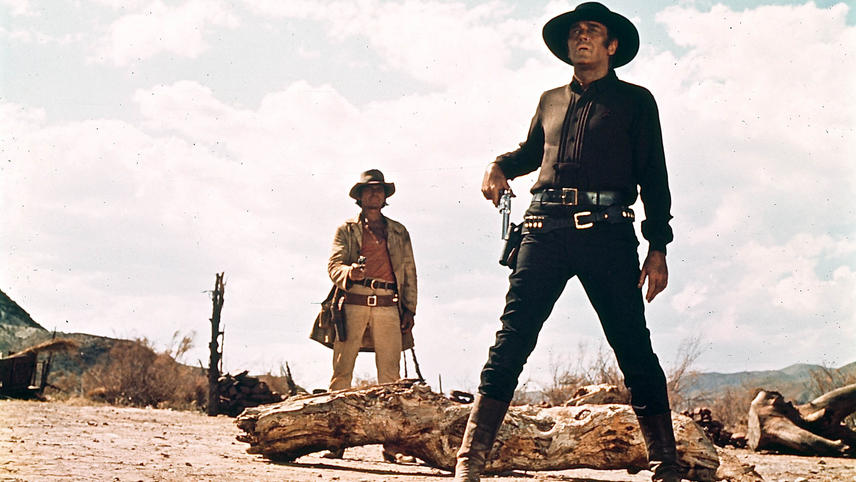
Acknowledging Sergio Leone’s 1968 magnum opus as the greatest Spaghetti Western of all time by a long shot still somehow feels like faint praise, especially given how few movies in the genre — Italian, American, or otherwise — have reached such sublime heights of visual and storytelling artistry before or since.
Epic in scale yet meticulously observed, “Once Upon a Time in the West” is many things at once: a masterclass in sustained tension and camerawork, a melancholic deconstruction of the fading American West, an unflinchingly anti-capitalist screed, a sublime showcase for its megawatt cast led by Henry Fonda, Charles Bronson, Jason Robards, and Claudia Cardinale, and a perfectly paced revenge tale that rarely hits a dull note in 166 minutes. Simply put, it’s a virtually flawless piece of work that sticks in the memory like a stone craw, made all the better because it plays out to the tunes of one of Ennio Morricone’s most moving and operatic soundtracks. If movies ever get any better than this, please let us know.
7. The Wild Bunch (1969)
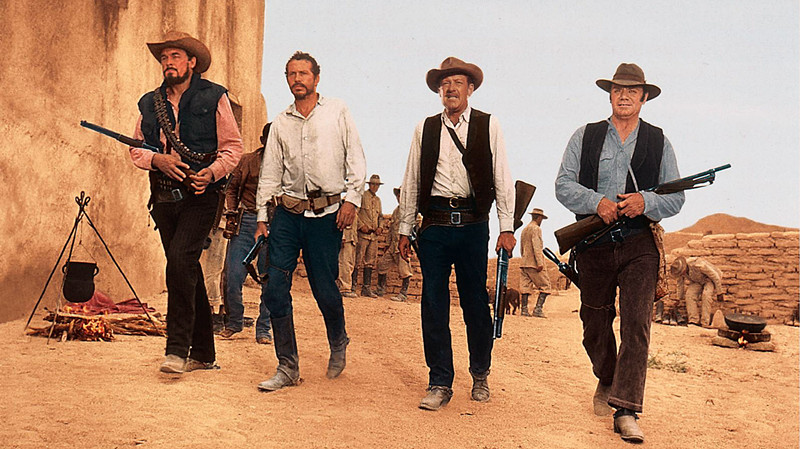
Ambiguity is the name of the game in this hard-edged Western directed by trailblazing Hollywood provocateur Sam Peckinpah, a guns-blazing R-rated extravaganza that rattled censors and became a lightning rod of controversy stateside for its boundary-pushing graphic violence and down-and-dirty portrayal of the Wild West as told through the eyes of a gang of aging outlaws on the lam heading down south of the border after a botched robbery.
You’d think that time might have already begun to soften its rougher edges with countless American directors from Walter Hill (“Wild Bill”) to Quentin Tarantino (“The Hateful 8”) and S. Craig Zahler (“Bone Tomahawk”) following Peckinpah’s footsteps to peel back the curtain and expose the rotten core that defined the nation’s origin myth. But “The Wild Bunch” — featuring one of the finest collections of certified Hollywood tough guys ever assembled including William Holden, Warren Oates, Ernest Borgnine, and Robert Ryan — has lost none of its power to provoke, throw you off balance, and make you sweat bullets with its blood-soaked set pieces, shock-addled twists, and climactic shootout.
If this film was anything to go by, 1969 marked a paradigm shift in the evolution of the genre. Riding the wave of “Bonnie & Clyde” and “Easy Rider”, Hollywood was finally ready to bid farewell to the rigid binary morality and old-fashioned heroism of the westerns of old: There were no clear-cut good guys anymore, and absolutely no transgression was off the table. Welcome to the Wild West indeed.
8. McCabe & Mrs. Miller (1971)
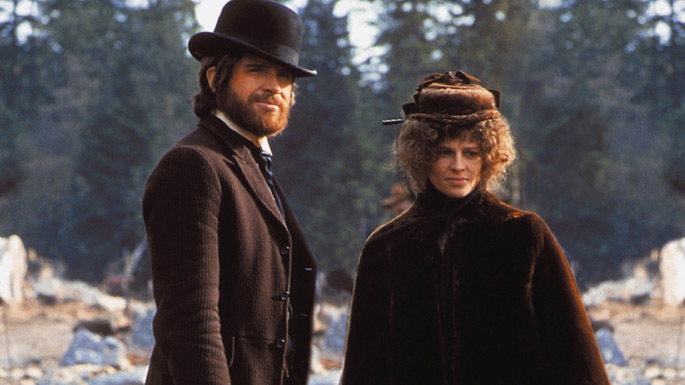
Having successfully tried his hand at deconstructing about every other movie genre there is, maverick auteur Robert Altman finally decided to dip his toes and jolt new life into the western with this off-beat, post-modern takedown of the American Dream. A cock-eyed fusion of tried-and-true genre tropes and Altman’s signature cinéma vérité style all funneled through New Hollywood Wave sensibilities, “McCabe & Mrs. Miller” is propelled by Warren Beatty’s irresistible charms as the titular opportunistic gambling drifter who links up with a down-and-out British madam (Julie Christie) to set up shop as the new brothel owners in the snow-bound mining town of Presbyterian Church.
This is a laid-back no plot, just vibes kind of film that coasts along strictly on breezy atmosphere, the melancholy ballads of Leonard Cohen, and the restless charisma and red-hot chemistry of its powerhouse star duo. Which doesn’t necessarily mean that it lacks the dangerous edge of other entries on this list. Far from it. If you’re not too big on overlapping dialogue and meandering plots and just looking for some big, loud shootouts that will get your heart racing and make you whoop and holler at the screen, rest assured, you’ll be more than satisfied if you stick with it until the end.
9. Unforgiven (1992)
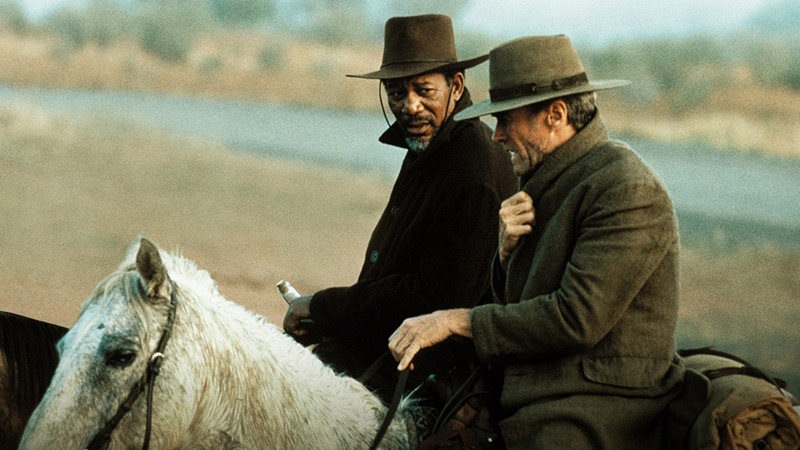
Deserve’s got nothin’ to do with it in this hard-hitting, Best Picture-winning tale of revenge, sin, and atonement set in the waning days of the Wild West, which finds Clint Eastwood sucking up all the oxygen in the room at his absolute gnarliest opposite Gene Hackman and Morgan Freeman as a widowed and reformed gunslinger trying his darndest to walk the straight and narrow as a pig farmer before taking matters into his own hands to settle a score with a pair of no-good rabble rousers who viciously brutalized a local whore.
Seldom has the American frontier felt as muddy, visceral, and uncompromisingly amoral as in Clint Eastwood’s presumed swan song (little did 1990s audiences know just how much tank the prolific legend had left in the tank thirty-odd years ago), a revisionist western that not only dares to interrogate the genre’s usual trappings and recurrent glorification of violence, but does so while cleverly deconstructing the myth built around its director-star that shaped his on-screen persona as a global emblem of stoic masculinity.
10. The Assassination of Jesse James by the Coward Robert Ford (2007)
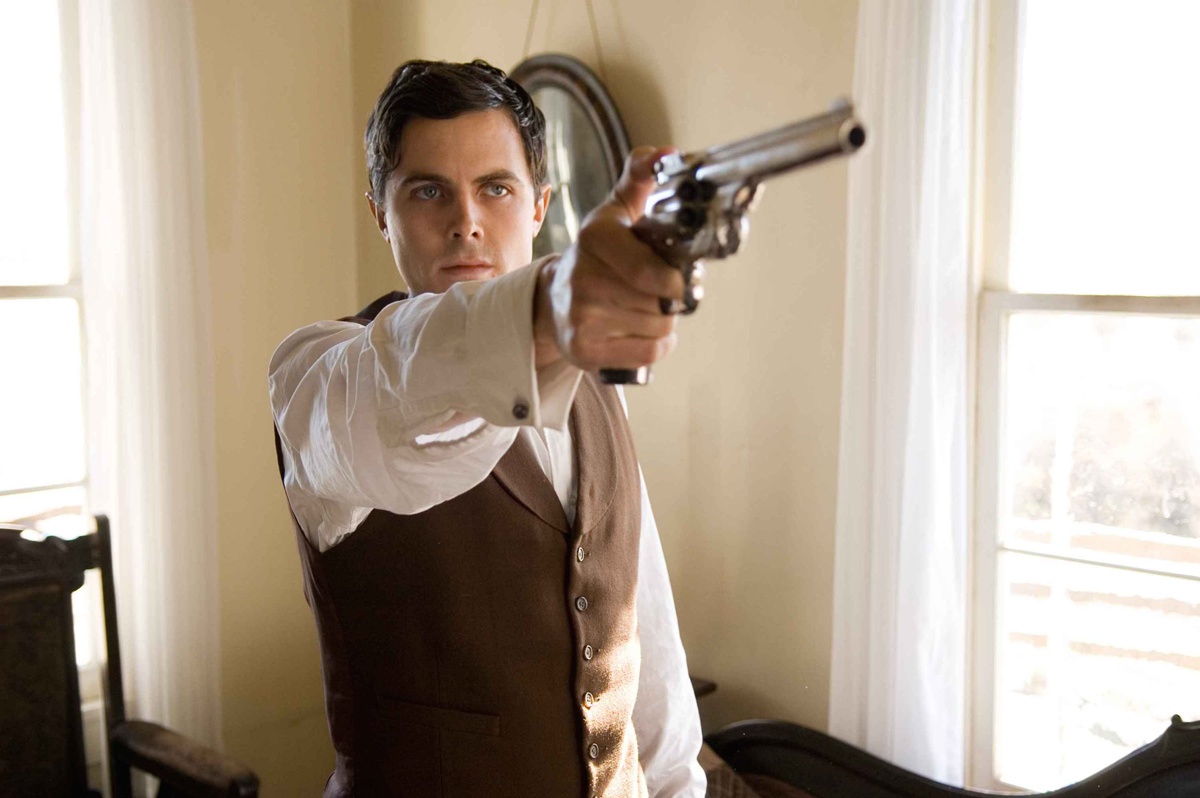
As expected, squeezing in a relatively new-ish title in the all-time pantheon of Western movies is something certain readers are bound to take exception to. But sometimes, you simply can tell an instant classic when you see one.
A pitch-perfect Brad Pitt virtually disappears into the titular role as one of the most notorious outlaws in American history — a half-man, half-myth whose forced-upon public persona projected an aura of divine invulnerability but is taken down a notch or two here, portrayed instead as an insomniac, ultra-paranoid schizo constantly teetering on the verge of collapse who’s nonchalantly betrayed by his young confidant Robert Ford (Casey Affleck).
A film that often reads like “Natural Born Killers” by way of Terrence Malick, Andrew Dominik’s impressionistic take on the life and demise of Jesse James makes its tenor clear by addressing the pitfalls of America’s deep-rooted obsession with celebrity and fame, which not only venerates and puts ruthless serial killers like its subject on a pedestal but posthumously turns them into larger-than-life folk heroes. Sure, it’s a meditative slow burner with a long fuse, but one worth your time if for no other reason than to bask in the atmosphere and gaze in wonder at Roger Deakins’ stunning cinematography.